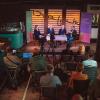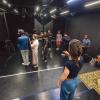Are Robots Taking our Jobs or are Humans just Becoming more Human?
2020
Mar
11
The Managing Director of IT Services Hungary will become an honorary professor at the University of Pécs Faculty of Engineering and Information Technology. Preceding the ceremony on 12 March, he held his inaugural lecture with the title “Artificial Intelligence and a Glance into the Future” on 2 March. His impactful presentation was held at the faculty’s lecture hall A007 and it was a great success.
Erik Slooten’s began his coruscating presentation with a glimpse into his educational background: He was a law student and he studied music for almost two years. He was also working during his studies, and ultimately has was offered a chance to participate in a telecommunication-training program there. “I still remember when one of our professors told us what to expect in the next 20-30 years. He talked about mobile phones and about what changes their use will bring. I was so awestruck that by the time the lesson was over, my mind was made up: I must work in communication technology. Everything he told us came true.
So let me share with you all what I think will happen in the next 20-30 years.
The market value of the Artificial Intelligence industry will jump from 21 billion to 190 billion dollars per year by 2025. Those countries who invest the most in this industry will rule the future. As of now China and the USA are the two biggest investors, with the former one being a more prominent agent.
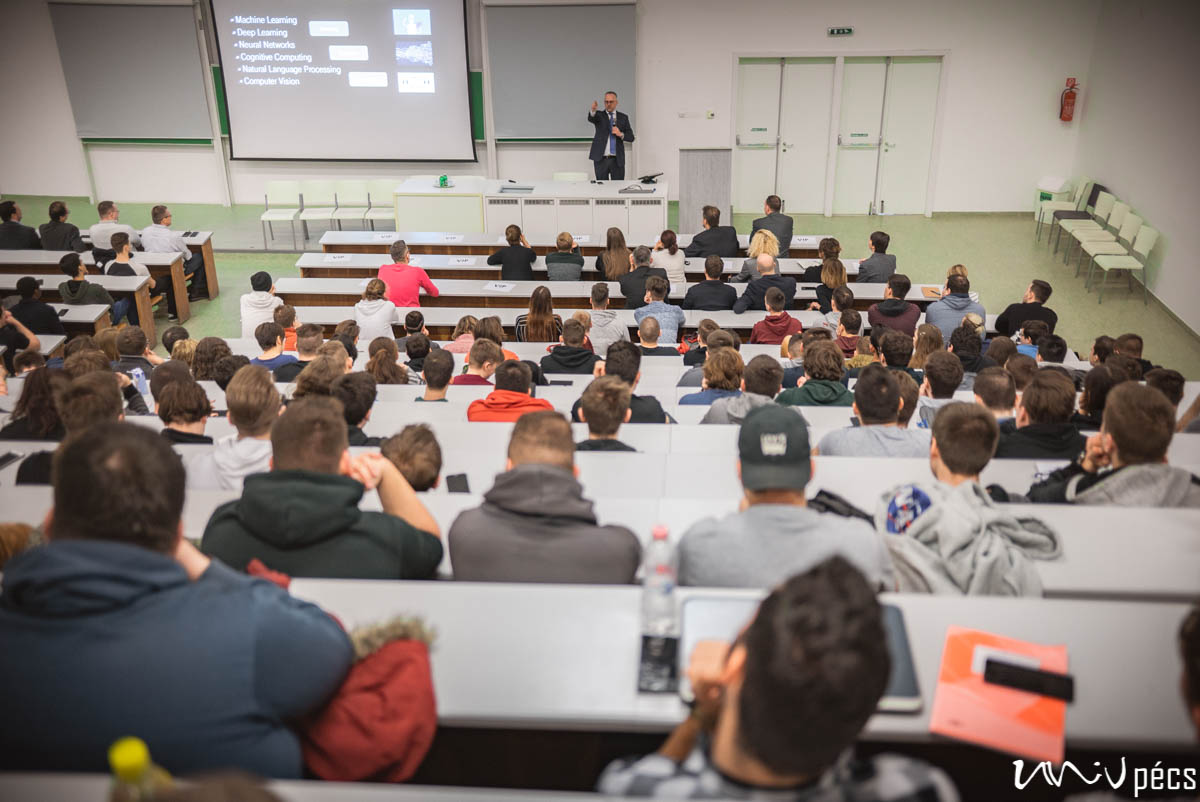
Ten or twenty years from now 80% of jobs will disappear: robots will replace human workers due to their faster, cheaper and better performance. The “wage” of a robot is lower than any other worker, they do not require breaks or rest, or restrooms for that matter, they do not need locker-rooms or designated smoking areas either” claimed Erik Slooten, before he addressed the white elephant in the room.
Should we be worried about this?
“You are all here because you thought that by coming to the university you could acquire certain skills with which you would get a well-paying job, and then you could buy a house, buy a car and create a family. We have been telling ourselves this mantra for centuries. This is so old-school. Of course we will spend less time at our jobs because of the robots, but why would less work even be a problem?” – asked Erik Slooten the rhetoric question; then he added:
“What we do with all this, will depend on your generation. Do not mess it up!”
After this, he discussed the differences between intelligence and artificial intelligence. By intelligence we mean the storage and usability of knowledge. Artificial intelligence learns faster than humans, it remembers longer and more clearly, it has faster and more accurate reactions and it can copy or mimic anything more precisely and quickly. On the flipside, it cannot be creative or funny, it has no ego, it cannot be social, it does not have intuitions or instincts, nor does it have “street smarts”.
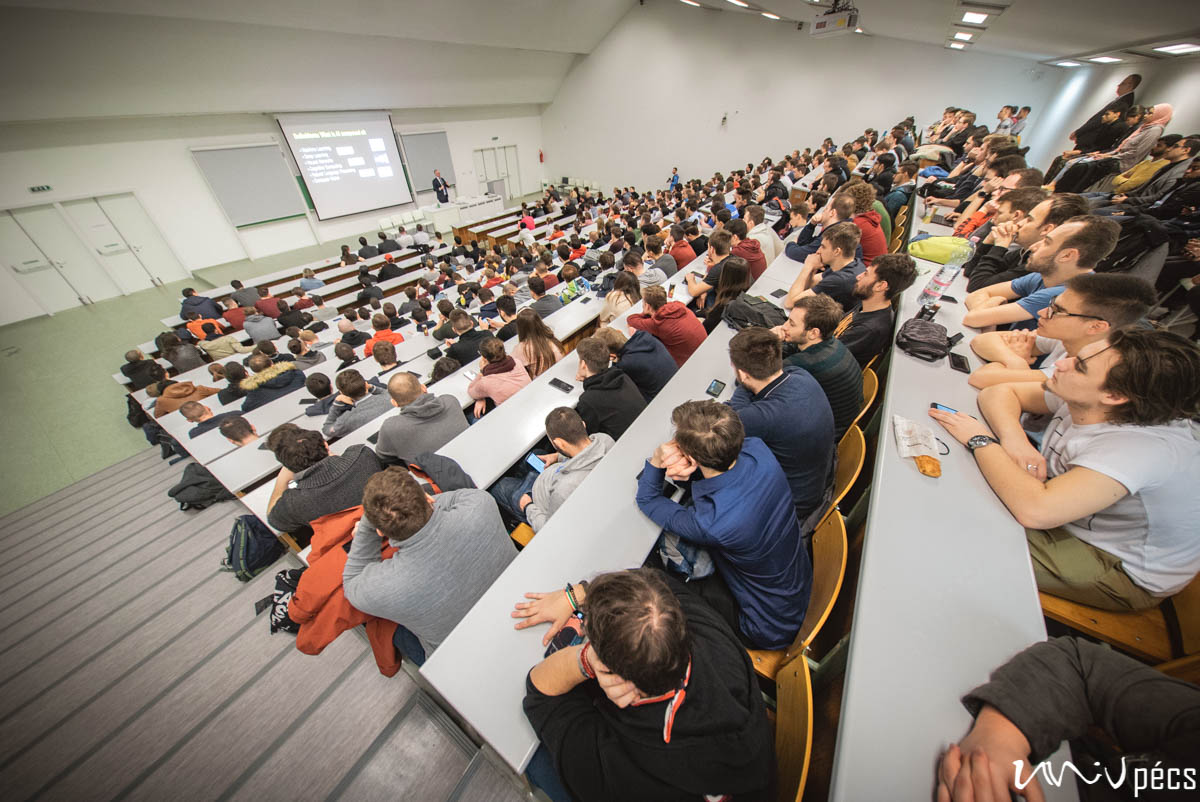
In the so-called Beethoven project, they taught an AI to complete unfinished musical compositions. While for the laymen it would sound completely fine but those who learned music – just like Slooten – the difference between the parts a human wrote and the ones written by the AI are quite clear. As far as the AI’s social skills are concerned: Slooten talked about the time when for the first time in history an AI beat the world champion in go –
the go master broke down crying while the AI did not react to the situation at all.
As why Artificial intelligence cannot be written off as a simple whim, Erik Slooten answered by correcting the common misbeliefs most often associated with AI. According to some, artificial intelligence threatens our lives and livelihoods… “We can try to hide from it, we can fear it but this trend is unstoppable” – the lecturer pointed out.
Twenty years from now,
there will be more robots in the medical sector than ever before. Among the innovations, there will be a toilet, which could analyze its user’s excrement, and it could find out whether the user is at risk of cancer 15 years before the symptoms would form. “This has a working prototype in Amerika” – added Erik Slooten. More and more factories will use a zero human touch method of production (The presenter brought up the Hell energy drink and the Mercedes factories, which already use this method.) However, education will became “smarter” too: an artificial intelligence could compile a study-plan, which takes into account the individuals learning needs perfectly.
Robots will replace chefs as well: the invention of the goulash 2.0 is obviously a creative process, however, peeling carrots and potatoes, slicing ingredients and following recipes are tasks that robots could perform faster and more accurately. A couple of examples to what the future might bring:
Twenty-thirty years from now: Artificial intelligence could bring an era of peace without war,
since they have no ego they could negotiate more rationally than diplomats would. The widespread use of self-driving cars would drastically reduce the number of traffic accidents. AI will develop and carry out space research and space travel. Because humans often disregard greater overarching connections, robots would be better used in the legislation system as well. “Things will become simpler and humans will be able to focus more on their human sides. We can become more human.”
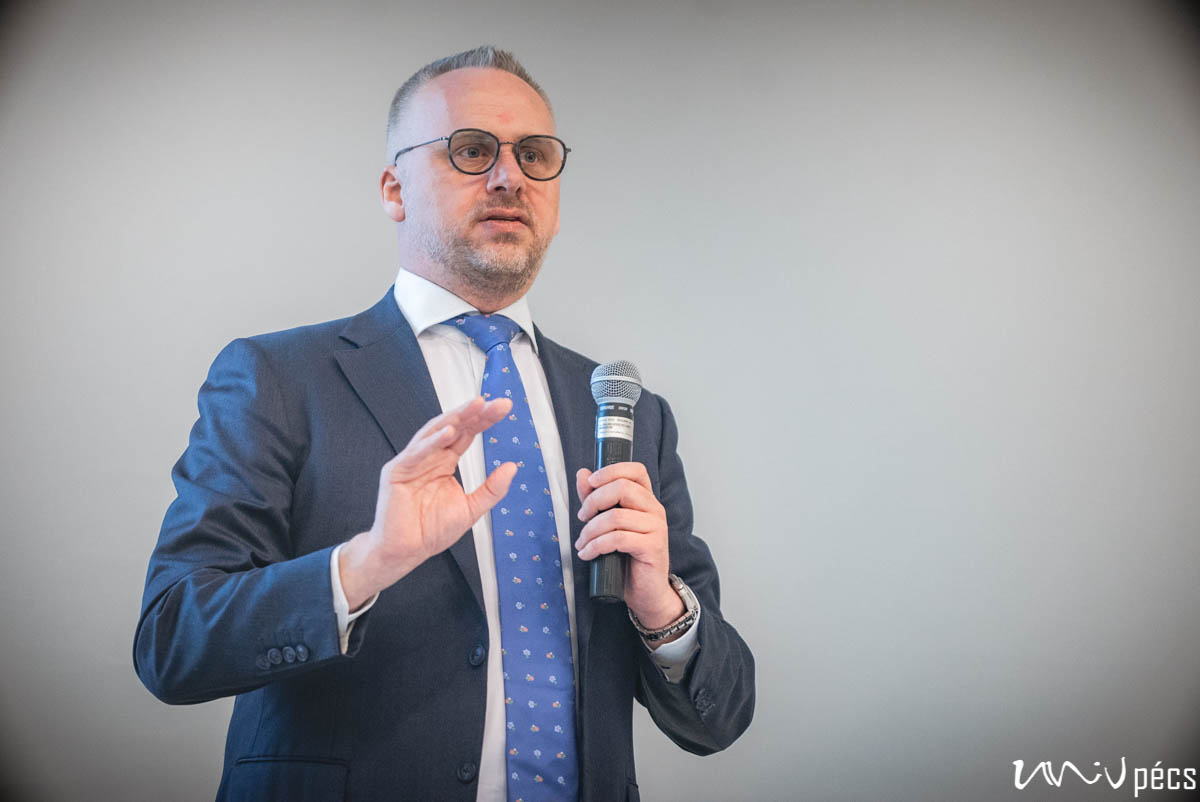
Erik Slooten addressed the risks associated and talked about protecting private data: “the more processes we automate the more we will depend on technology.” The IT manager who previously worked in the Irish financial and banking sector spoke about a previous hacker attack which fortunately got stopped way back then. Then again,
“the risk of people with ill intent trying to weaponize AI is a very real concern”
- according to Slooten. It was a funny sidetrack when Erik Slooten asked his audience who would implant robots into their body in order to enhance their health or skills. “25 years ago no one would have dared to make this decision. Artificial intelligence was so unknown and alien to most people that those who would have been willing often were labelled as someone who has turned to the “dark side” – as if they would become Darth Vader. We are living in an age of shifting paradigms” – emphasized Erik Slooten. “We have to learn how to live and work with artificial intelligence. We have to re-evaluate our attitude towards work, toil and money. We will not be enslaved by our jobs anymore and we will have more time to spend on aspects that make us special. Creativity, affection, sympathy, altruism, humor and care: these are real human values, which cannot be replicated.
Are you ready to reinvent yourselves to deal with the disruptive effects of AI?” – asked Erik Slooten. After a moment of silence, he answered: “No, we are not ready, but we have to ready ourselves.
Let us ride this weave, because it is coming!”
Written and translated by: Éva Harka
- Log in to post comments
University of Pécs | Chancellery | IT Directorate | Portal group - 2020.



